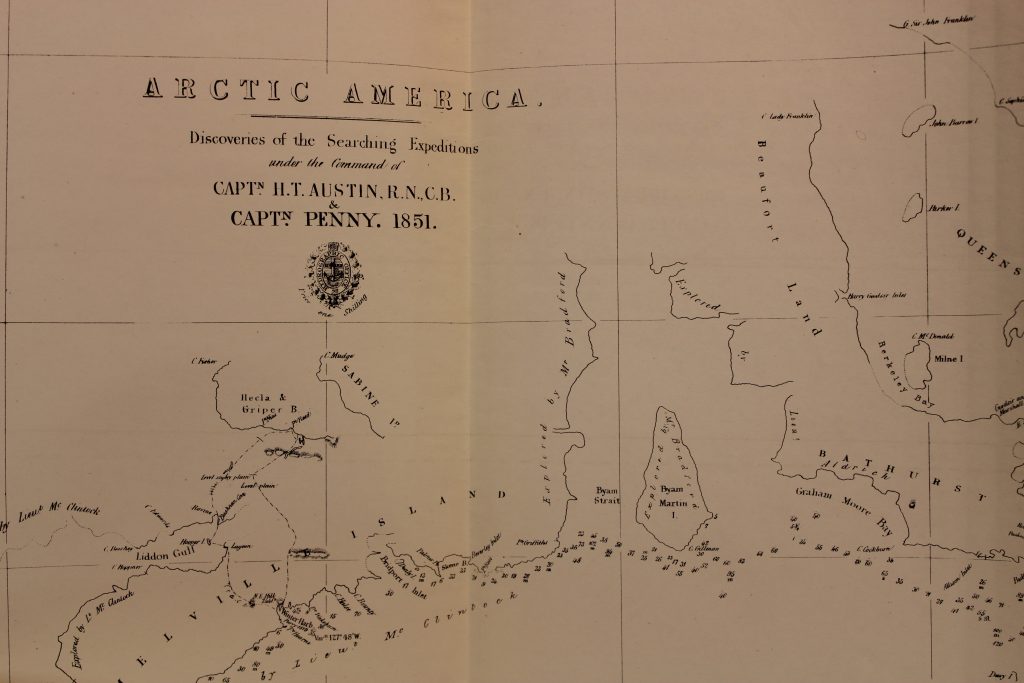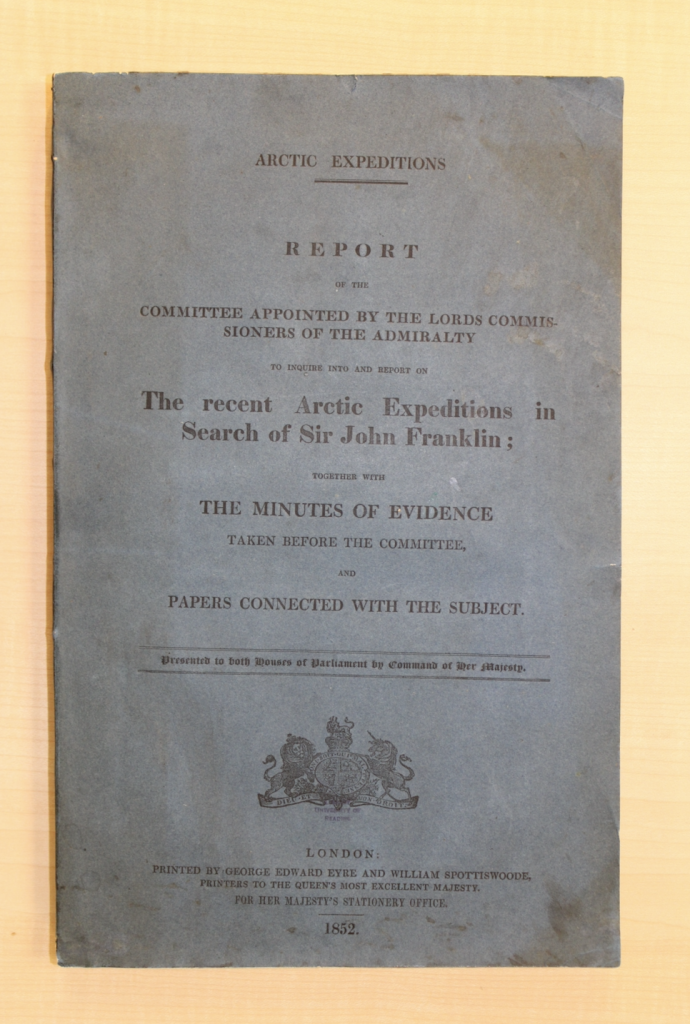Rare book linked to Franklin expedition acquired

In addition to Parliamentary testimony, the Arctic Blue Book contains cartographic information, illustrations, scientific data, logistical data and more. Photo: Myron Groover
The year is 1845. Two ships set sail from England to search for a Northwest Passage across what is now Canada’s Arctic. The ships and crew members never return.
While it may sound like the plot of a thrilling Hollywood film, this is the true story of the doomed Franklin expedition.
The years that followed saw an ongoing public fascination with the fate of the ships and crew. Knowing this, the canny booksellers compiled and printed the subsequent Parliamentary papers and testimonies on the fate of the Franklin expedition for resale.
Now one of these books — known as the Arctic Blue Books owing to their distinctive blue covers — has been acquired by the William Ready Division of Archives and Research Collections of McMaster University Library.

“You don’t see Blue Books come available every day, particularly ones related to the Franklin expedition,” said Myron Groover, archives and rare books librarian at the William Ready Division of Archives and Research Collections. “A book like this represents a direct, tangible connection both to the Franklin expedition and to the Parliamentary recordkeeping of our own time.”
This particular Blue Book, dating from 1852, features a detailed account of an expedition dispatched to the Canadian Arctic in 1850-51 in the hope of locating Franklin’s ships and sailors — or at least news of them — under the leadership of Capts. Horatio Thomas Austin and William Penny.
“The testimony is more interesting than it sounds,” said Groover. “These expeditions weren’t just to find Franklin. Like many Royal Navy voyages at the time, they were also collecting scientific data that had a bearing on the questions that they were asking of the landscape — measuring ice floes, meteorological information, really anything that affected the conditions of the search for Franklin. So, in addition to the Parliamentary testimony, the book contains cartographic information, illustrations, scientific data, logistical data, and more.”
Just as it was in the years after the ships’ disappearance, Sir John Franklin’s doomed expedition has resurfaced as a source of public fascination in recent years.
In 2014, Parks Canada announced that the HMS Erebus had been located at last, and the official “re-discovery” of the HMS Terror followed two years later.
“These expeditions would never have been possible without the expertise and knowledge of local Inuit communities, who — in contrast to repeated failed European efforts to locate the ships — had passed down detailed and accurate knowledge of the wrecks and their locations ever since they first were stranded in the ice,” said Groover. “This oral history was a major source of information for the archeological undertakings which brought the wrecks back to the attention of the wider world.”
These rediscoveries and the renewed appreciation of Inuit traditional knowledge, along with a recent AMC television series called The Terror, have thrust the Franklin expedition back into the spotlight.
“The Franklin expedition has a bigger place in the popular imagination now than probably any time in the last 50 years,” said Groover. “The Blue Books are rare; we can’t easily confirm the number that still exist today.”
The acquisition of the Arctic Blue Book was made possible thanks to the support of the Dr. William G. Bensen family.
“The Bensen family is a long-time friend of the William Ready Division of Archives and Research Collections and McMaster University Library, and it is thanks to their ongoing support that we can acquire and make available to students, faculty, and the public rare books such as this one,” said Wade Wyckoff, associate university librarian, distinctive, legacy, and digital heritage collections.
The archives and research collections team will be seeking to build on this acquisition, noted Groover.
“McMaster holds a wide range of publications relating to early European voyages to the American continent and European efforts to explore and map the Arctic by land and sea,” said Groover. “One Blue Book is interesting, but books are best in company. So, we are going to be looking to acquire others from the same time period to build this out into a more developed collection.”


